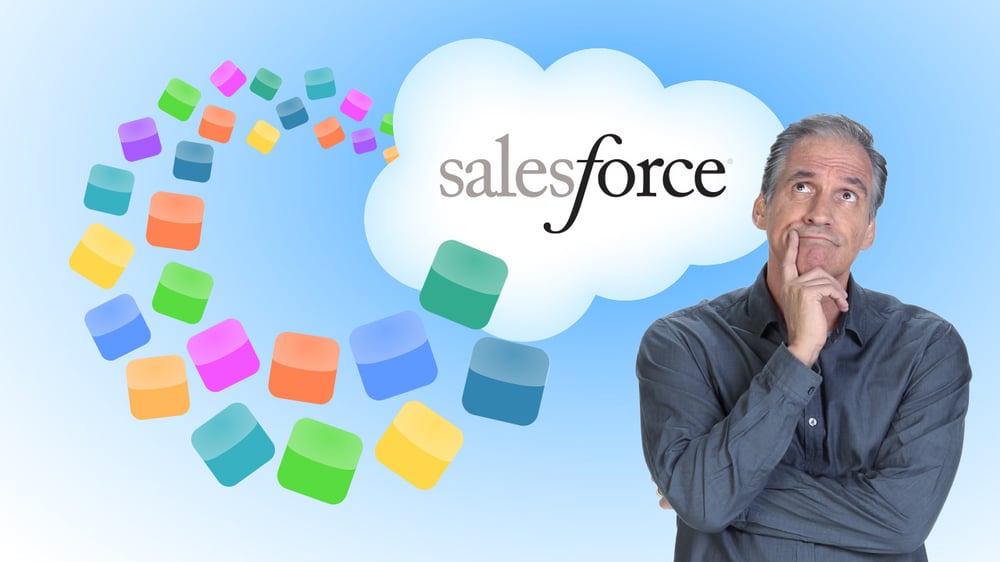Salesforce, the San Francisco-based client relationship management software provider, has added a suite of compliance features to assist advisers in satisfying the requirements of the
Department of Labor's fiduciary rule.
Salesforce Shield expands history retention for data up to a decade with its audit trail feature and allows advisers to determine who accessed what data from where, as well as what they're doing with the information, such as printing pages and editing records. Advisers can also
encrypt their data.
Salesforce's new upgrades were released on Monday and can be purchased by feature or as a package. It is priced at a percentage of the customer's total Salesforce bill. Shield was created a year ago and applied to other versions of Salesforce before being added to
Financial Services Cloud.
"Now you can get the full representation for clients that Financial Services Cloud has, but drive the standardization around the business process and product standards coming from the fiduciary rule,” said Rohit Mahna, general manager of financial services at Salesforce.
CRM providers argue their software acts as the hub of an adviser's practice, housing client data and notes on meetings and interactions. The Department of Labor's rule, which requires all advisers to act in their clients' best interests on retirement accounts, will only strengthen that role, they say.
"CRM by its very nature allows advisers to record information with transactions with clients, so on the face of it, CRM is good for the mandates of the DOL law," said John Rourke, chief executive of Starburst Labs, the creator of Wealthbox CRM. "The heart of this is recording and compliance."
Wealthbox enhanced its archiving and editing tools in anticipation of the regulation, Mr. Rourke said. Advisers who use the software can see an audit trail of notes, which can be edited and color-coded.
Sue Glover, president of Susan Glover & Associates, a financial services technology consultancy, said the core of an adviser's practice is not necessarily the CRM but depends on the services advisers provide — for some professionals, it may be the portfolio management system, while others may say it is their financial planning software.
The CRM can't do it alone, but it does help ensure advisers are doing their due diligence, she said.
"Services are going to be different based on client types but as long as consistency is there, it is easier to prove what you're doing from an operational standpoint," she said. "That is why they say the CRM and onboarding and streamlining your operation is important, because you can show consistency."
Grendel, another adviser-specific CRM created by Big Brain Works, is working on tools to help advisers comply with the DOL rule's requirements. Aaron Guidotti, chief executive of Big Brain Works, said in an email that the CRM acts as a digital paper trail, allowing advisers to prove their efforts. He said he could not give full specifics yet as to what the company is working on but that it has to do with proving due diligence and providing transparency.
Since the Department of Labor released the fiduciary rule in April, vendors have been creating or enhancing their products to attract advisers with no choice but to
ramp up their technology efforts. PIEtech, the creator of financial planning software MoneyGuidePro, recently released a
fiduciary-focused software and risk management software companies are looking at ways to assist advisers in
assessing their clients' risk exposure.
Cerulli Associates expects more
innovation and technology adoption as a result of the fiduciary rule. A SS&C Technologies Holdings survey found the regulation will cause advisers to
spend more on technology: 85% of investment professionals said their firms will look to new technology, and 33% said allocation of it could be as much as 10-20% of their current budgets.
Some vendors haven't changed any of their features for the rule. Greg Friedman, chief executive of Junxure, a CRM, said in an email that Junxure already had everything in place to help advisers comply "effectively and efficiently." He said advisers can use the technology to make sure they have good records and to report and query information so that nothing is overlooked.
Documentation is going to be key to meet the needs of the fiduciary rule, said David Mehlhorn, director of sales at Redtail, another CRM in the financial services industry. Another important aspect will be workflows, which will help advisers establish that they are doing everything required, such as getting a best interest contract signed. Earlier this year, Redtail added a tool that lets advisers track when a best interest contract agreement was signed, or search for which clients have and do not have the contract signed.
He said advisers' interest in workflows has skyrocketed in the last six months.
"People are realizing they need these properties to meet the requirements to come," he said.







